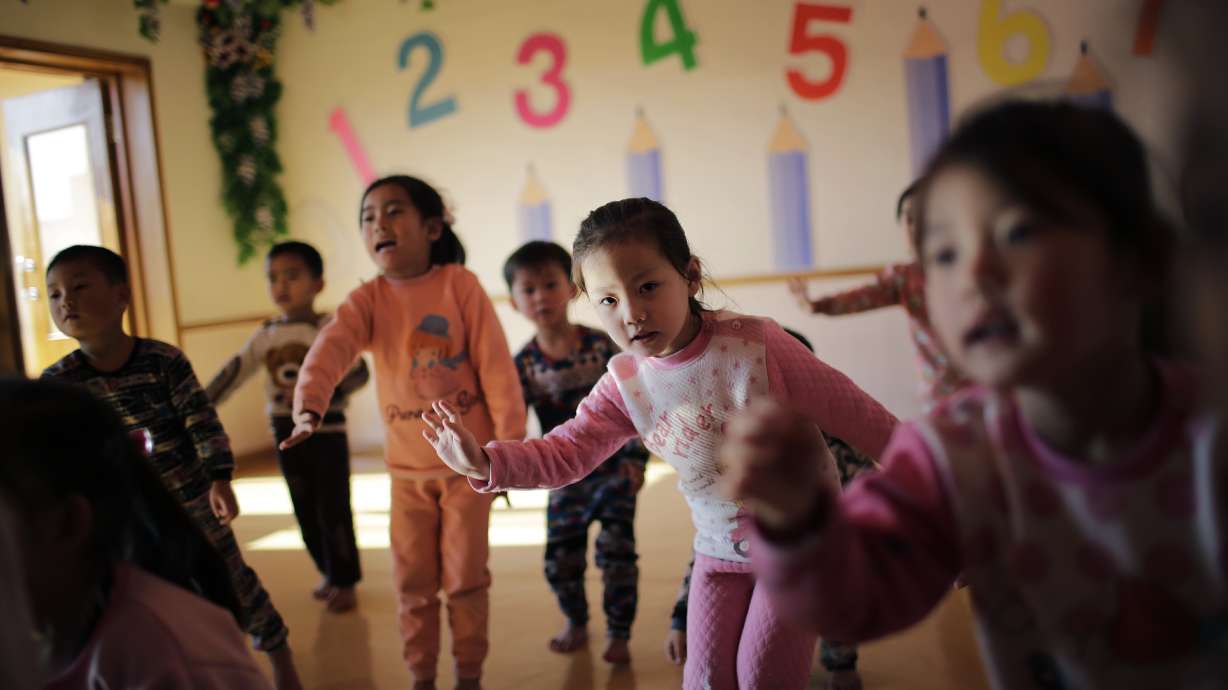Estimated read time: 4-5 minutes
This archived news story is available only for your personal, non-commercial use. Information in the story may be outdated or superseded by additional information. Reading or replaying the story in its archived form does not constitute a republication of the story.
SALT LAKE CITY — The COVID-19 pandemic has exposed a multitude of challenges and vulnerabilities that Utah faces, including the complexity of and accessibility to child care.
While most children have returned to the classroom, the pandemic's disruption of schools has exposed an issue Utah has long grappled with. As Utah has emerged as the state with the fastest-growing population and youngest population, business and political leaders have begun to ask what the key is to the state's continued success.
Founding director of Utah State University's Utah Women and Leadership Project Susan Madsen says that Utahns already know the answer. A symposium held by Madsen on Tuesday with panel discussions noted why high-quality, affordable child care is a key to prosperity for the state and the challenges in providing it.
Industries across the nation have been affected by a severe labor shortage. As Utah's unemployment rate continues at 2.1%, industries across the state have grappled with shortages and high turnover. Amid the shortage and the ongoing "Great Resignation," Utah business leaders emphasized the importance of accessible child care.
"Child care is not a family issue, it is a business issue. We need to build child care infrastructure. That is needed to help working parents keep working for their families and for the economy as a whole," Dave Nielsen, president at Overstock.com, said.
A 2020 Care.com study revealed that 83% of millennials shared that they would leave their job for one with better family and lifestyle benefits. As the workforce continues to change, businesses will need to adapt or be left behind, Nielsen said.
"If employers aren't addressing the needs of such a large portion of the workforce they'll quickly be surpassed by the competition," Nielsen said. "You're competing against the entire country, not just Utah anymore."
The panelists pointed to creating a company culture centered on employees' needs to prevent turnover and burnout. Among those needs is providing access to child care whether it be through stipends, a contract with a third-party facility or onsite child care.
"The people you want to hire, the people that are working for you, they're struggling. They're struggling because there's a policy issue and there's a societal issue related to child care. It's a gap and it's a problem," Panelist Heather Kirkby said.
A study by the Center of for American progress found that 77 percent of all residents in Utah live in a child care desert. The center defines child care desert as "any census tract with more than 50 children under age 5 that contains either no child care providers or so few options that there are more than three times as many children as licensed child care slots."
The data show that child care deserts are associated with fewer mothers in the workforce.
"If you're not having this discussion you've got a diversity issue in your leadership," panelist David Alsop said.
But not every business can afford to provide child care and the cost of it can be difficult for families.
"I really believe that government has a key role in helping increase access," Elizabeth Garbe, United Way Salt Lake's senior director of government relations and public policy, said. "I know, in Utah, we value children and we value family. Part of that is understanding that in valuing parents and families and children is that they also need help."
Solutions presented during the symposium include:
- Expanding support for child care business owners.
- Helping child care consumers (parent, family and guardian).
- Increasing support for employers.
- Passing land use policies.
Several of the solutions presented will be addressed in HB15, Child Care Amendments, sponsored by Rep. Susan Pulsipher, R-South Jordan, along with possible grants funded or reallocated by the legislature.
"In the past, we haven't talked about it a lot. We haven't done much, but I think we're there and I think we're ready to act and do some things. The bill that I have, it doesn't solve every problem, but it's a really good start," Pulsipher said.
A start that Anna Thomas, with Voices for Utah Children, said is essential.
"With all of the stresses and the trauma that have built up among families and among providers over the last two years — I would say without substantial and dramatic intervention at this point — we're not talking about prospects for success. We're not even talking about prospects for sustainability. We're talking about how to manage the crumbling of one of the most important and invisible sectors in our economy," she said.










